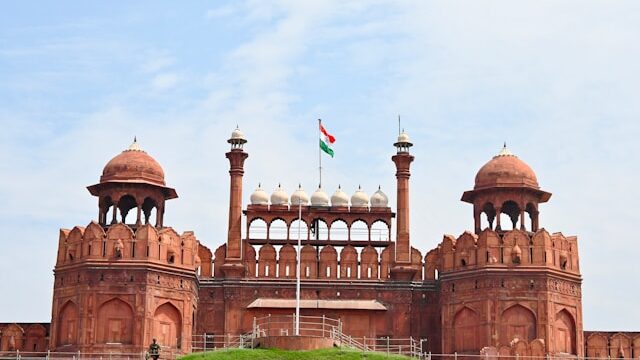
(Agencies): A wave of deadly bombings in India and Pakistan has reignited fears of rising extremism and cross-border tension in South Asia. On November 10, a car bomb exploded near New Delhi’s Red Fort, killing at least eight people and injuring many more, according to police and Church leaders. The following day, a suicide bombing outside a judicial complex in Islamabad killed 12 people and wounded at least 36.
The near-simultaneous attacks have prompted urgent calls for vigilance, unity, and stronger security from religious leaders on both sides of the border as authorities race to uncover links and prevent further violence.
The Catholic Bishops’ Conference of India expressed “deep sorrow at the deaths of eight innocent people and for the injured”, calling on the public to “keep vigil and pray” as tensions rose following a string of security incidents, LiCAS News reported.
“Our thoughts and prayers are with all those experiencing immense pain at this time. We also pray for the speedy recovery of the injured,” the bishops said in a statement as authorities expanded a nationwide investigation.
The near-simultaneous attacks have prompted urgent calls for vigilance, unity, and stronger security from religious leaders on both sides of the border as authorities race to uncover links and prevent further violence
The bishops urged citizens across India to “remain vigilant and report any suspicious activity to the police without delay”, stressing that national unity is essential to confronting terrorism.
Parish priests were likewise asked to “inform the competent authorities about any suspicious activity or abandoned objects in or near church premises.”
The statement concluded, “Let us remain united as one community; let us maintain peace and work together to ensure the safety and well-being of all citizens. Let us continue to pray for peace and security in our beloved nation.”
Investigators have opened a terrorism case, granting broader powers of arrest and detention. At least five suspects have been arrested in Pulwama district in southern Kashmir.
Police also dismantled a suspected terrorist cell in Faridabad, on the outskirts of New Delhi, arresting seven additional militants and seizing weapons and large amounts of explosive-making materials.
Let us remain united as one community; let us maintain peace and work together to ensure the safety and well-being of all citizens. Let us continue to pray for peace and security in our beloved nation
Catholic Bishops’ Conference of India
Security agencies in both India and Pakistan are examining possible links between the Red Fort attack and regional unrest, particularly in Kashmir. The November 11 attack, the first in Islamabad in nearly three years, was claimed by Jamaat-ul-Ahrar, an offshoot of the banned Tehreek-e-Taliban Pakistan, according to local media reports.
Bishop Samson Shukardin of Hyderabad, president of the Catholic Bishops’ Conference of Pakistan, condemned the bombing and expressed alarm at the country’s deteriorating security situation, according to UCAN.
“We are saddened by this attack. Such violence shows how vulnerable our institutions have become, and it is a warning for the state to strengthen its security,” Bishop Shukardin said.
“The blast targeted state institutions, not ordinary people, because of their policies,” he said.
Local media reports indicated the blast was aimed at putting pressure on Islamabad to ease tensions with Afghanistan’s Taliban-led government.
Authorities are also monitoring the wider fallout, mindful that each attack risks escalating political tensions and fuelling extremist violence across borders
Retired Bishop Samuel Azariah of the Church of Pakistan described the bombing as “a failure of state security”.
Bishop Azariah said, “At least four policemen are stationed at every major church building in Rawalpindi and Islamabad, but their training and equipment are inadequate to handle such situations.”
He added, “Tensions with neighbouring countries remain high, while political infighting has deepened despair among the public.”
The Islamabad bombing came a day after security forces foiled a suicide attack on a cadet college in Wana, South Waziristan.
According to interior minister, Mohsin Naqvi, the operation in South Waziristan killed the suspected bomber and several Taliban militants, rescuing 550 students, though three Pakistanis were killed in the clash.
Pakistan has witnessed a sharp rise in terrorist attacks in recent years, especially in the restive provinces of Khyber Pakhtunkhwa and Balochistan. The surge began after the Tehreek-e-Taliban Pakistan ended its ceasefire with the government in November 2022.
Islamabad has accused the Taliban regime in Afghanistan of sheltering militants responsible for cross-border violence and warned of retaliation if the Afghan authorities fail to act.
Authorities are also monitoring the wider fallout, mindful that each attack risks escalating political tensions and fuelling extremist violence across borders.
India and Pakistan are probing links between the bombings and wider security threats, including unrest in Kashmir. Religious leaders warn such violence risks deepening fear and destabilising the region.



